In this article, we'll cover:
What is a Cloud Engineer?
Cloud computing seems to have taken over the world. As a result, cloud engineers’ demand is high and ever-increasing; ss are the earnings that those cloud engineers can make. For IT professionals, a career in private or public cloud computing has become a standard, with more and more choosing this type of work.
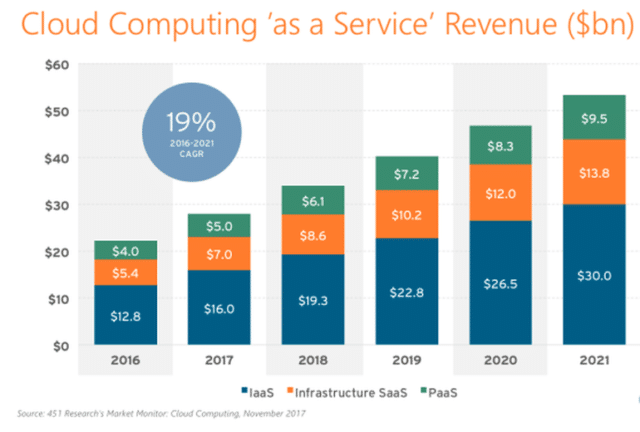
But what are the roles and responsibilities of a cloud engineer? What skill are sets needed for candidates that want to operate in this field?
At a high level, cloud engineers are IT professionals who work with the technicalities that come with the ever-increasing cloud work environment. This includes planning, managing, designing, and monitoring cloud systems. It also includes having a skill set that would allow for the deployment of cloud applications.
More specifically, a cloud engineer’s role can be broken down to focus on the particular expertise of those responsible for specific segments within the cloud environment. For example, a cloud security engineer, SysOps engineer, docker engineer, and solutions architect all have a very distinct role and set of responsibilities, but they are all cloud engineers.
The particular distinction in the type of cloud engineer, such as a solutions architect, comes from achieving Azure, AWS, or Google Cloud Platform (GCP).
Though you can have various types of cloud engineers, the main responsibilities of architecture, management, planning, and monitoring are native to all, and a cloud engineer doesn’t necessarily have to be certified.
There are three main types of cloud engineers; solutions or cloud Architect, SysOps engineer, and cloud developer. Let’s look at those roles in turn.
Solutions architect
A solution or cloud architect is responsible for the design of applications and cloud infrastructure. They have extensive experience and enhanced technical knowledge when it comes to designing cloud distributed systems and applications. Put, and a solutions architect designs the blueprints of applications.
Solutions architects are also responsible for the migration of an organisation’s application(s) from on-premises to the cloud. They look after the implementation of cost optimisation, the design and deployment of cloud applications, and cloud usage maintenance. Finally, they’re also responsible for recognising any relevant cloud services that would be useful for the cloud support of their applications.
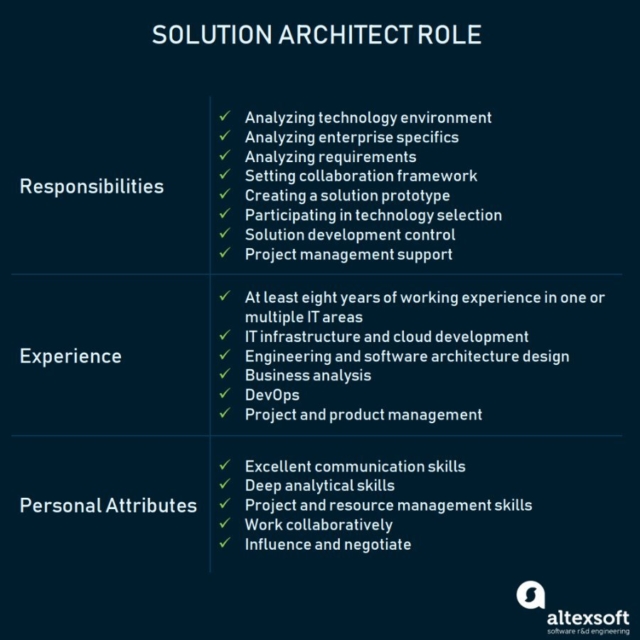
SysOps engineer
A SysOps engineer, or a system operations engineer, is basically a system administrator that looks after the applications once they have been designed and developed. They are also responsible for the development process by managing and regulating those applications.
To be a SysOps engineer, you need to have experience in system administration in a system operational role and operate fault-tolerant systems. You must be adept at working with virtual platforms.
Other necessary skills include monitoring, auditing, and the ability to translate architectural requirements. Finally, SysOps engineers need to be intimately familiar with implementing and controlling cloud data flow, both to and from the service cloud provider and data centres.
SysOps engineers are responsible for identifying bottlenecks in application performance. They also oversee recovery management to make up for any potential failures or downtime and maintain data integrity by implementing cloud access controls. Finally, SysOps engineers are responsible for the management of any network-related workloads, like DNS or firewalls.
Cloud developers
Cloud developers are what they say on the tin – developers of cloud applications. They need to have programming skills and are responsible for developing, deploying, and debugging cloud-based applications.
To be successful, they need to know all the important features of cloud service providers and be experts in the writing, correction, and debugging of them. They must also be able to understand the use of containers for developmental purposes.
Cloud developers are responsible for recognising the best cloud-based solutions and practices that could be useful for application support. The code for cloud-native applications and provide automation of development processes. Finally, they will be well used in the application life cycle and the use of APIs.
How to become a good cloud engineer
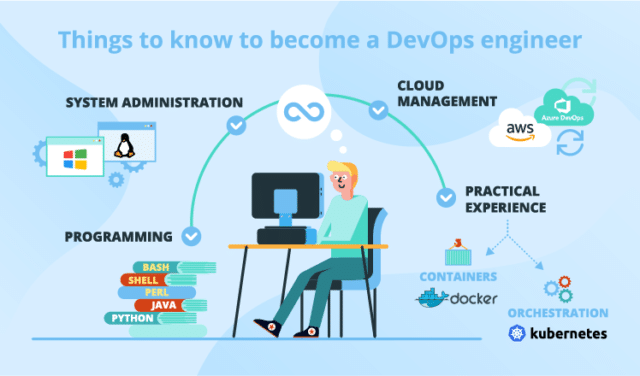
To become a cloud engineer, you need to have clear and detailed knowledge of cloud computing.
This means knowing:
- What cloud computing is
- What its main domains are
- Its necessity and requirements
- Cloud computing impacts
- Deployment models
- Cloud services models
- A variety of cloud services and providers
- The difference between server installed or on-premises approaches and cloud-based approaches
It’s also useful to know other cloud fundamentals such as computer security, networking, and computer architecture. As well as the principles of PI SQL, Kubernetes, Python, Java, and Linux. Lastly, having some knowledge of the dominant cloud service providers, such as Microsoft Azure, AWS, and Google Cloud Platform, is critical.
The learning process of becoming a cloud engineer is intense and varied. It requires practical implementation experience and hands-on labs of the various particulars. These include storage services, database services, computer services, VPN and cloud networks, low balancing and scaling, application migration, and cloud monitoring.
The best way to gain this experience, either as a new starter or a cloud engineer that wants to excel, is through cloud engineering certifications. These allow you to validate your experience and knowledge in specific cloud services and their implementations, as well as specialise in your cloud engineering segment.
Cloud engineering certifications and why they’re essential
The cloud computing industry has generated a lot of interest and investment over the last few years. It has now become an essential part of IT infrastructure and has grown exponentially.
Wikibon has reported that AWS’ revenue will reach $43 billion by 2022, with Google Cloud Platform and Azure Cloud not far behind. As it becomes essential for IT and business in general, cloud computing’s growth ensures the demand for cloud skills will increase.
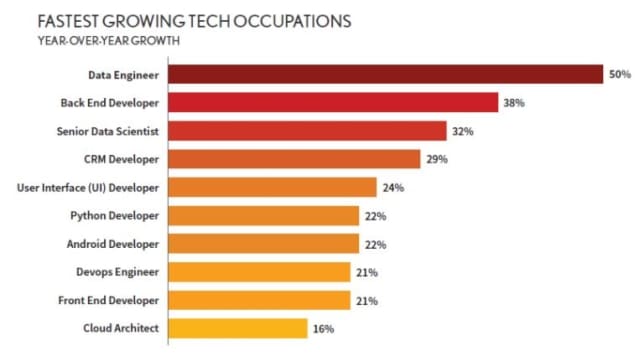
Aspiring and experienced cloud engineers alike will need to prove that they have the knowledge and skills to land the very best jobs that they can. Cloud engineering certifications are the best way to do this.
Increasing demand for cloud engineers
The demand for cloud engineers, software engineers, and other computing professionals will only continue to grow with time. Organisations are now looking for professionals who can seamlessly implement cloud environments, especially those who have undertaken professional training in cloud computing.
Carrying out a quick search on Indeed today brings up almost 7,000 jobs in the UK that are available for cloud engineers. Comprehensive cloud engineering training and qualification, such as the AWS Solutions Architect Training, will give a massive advantage to all who achieve it.
It gives those who have completed their knowledge in the latest trends, key concepts, and the best practices for working with AWS infrastructure and ensures that anyone qualified will be industry-ready.
Over the last few years, the number of jobs available to work for Azure has also increased. However, it’s also become clear that finding an IT professional who is especially skilled with Azure can be pretty challenging. Certifying in Azure Infrastructure Solutions will ensure that candidates stand out from the competition and have the skills necessary for these specialised roles.
Another popular strand in cloud engineering is DevOps. As this becomes more popular, the demand for certified professions will continue to grow and escalate. Becoming a DevOps engineer licensed with a DevOps Practitioner Certification will make the difference, both in the ability to stand out from the crowd in job applications and how well you will perform in your role.
Earning potential
It’s been reported by Simplyhired that the average salary for a cloud administrator is less than $78,000. Cloud developers earn about $118,758 a year, and cloud architects earn from an average of around $124,406 to a height of $173,719.
Specialising and earning qualifications are directly correlated to your earning potential.

Qualifying your expertise
Cloud engineering certifications are a fantastic way to measure your skills and knowledge against industry benchmarks. IDC and Microsoft have both said that certification, experience, and training are three of the top things to look for when hiring a candidate for a cloud engineer job.
Earning a certification in cloud engineering shows that you’re skilled enough to help minimise your organisation’s risks and costs regarding projects on various cloud platforms. This will increase the likelihood of cloud-related projects and opportunities, and clients will know that you are a credible subject matter expert.
These qualifications prove to everyone that you can work on complex procedures and handle cloud deployment in any organisation.
Cloud engineering certifications are also variable. You can choose to specialise in a certain cloud computing area or one or more vendor-specific certification (like AWS or Azure). Cloud certifications really are the greatest way to help your career reach new heights!
What are the best ways to develop your cloud engineering skills?
Apart from cloud engineering certifications, there are many other ways to learn and develop your skills as a cloud engineer. This is true for anyone involved in cloud computing, whether you’re just starting, making a career move, or looking to enhance your skills for your current role.
Courses
You can find many in-person and online training courses ranging across the spectrum of cloud computing. When looking for training courses, the question to ask yourself isn’t, “What is my experience,” but rather, “ What do I want to learn?”
You’ll find many choices available; some you will need to pay for, others will be free, and some will offer you free trials. Have a look online, and research what you’re looking for. Once you’ve found the course for you, get on it!
Here is a quick snapshot at some of the best places to start:
This is a popular cloud offering that provides hundreds of online courses, many of which are free. We’ve talked a lot about the cloud engineering certification courses that AWS offers in this guide, but their online course offering extends to so much more.
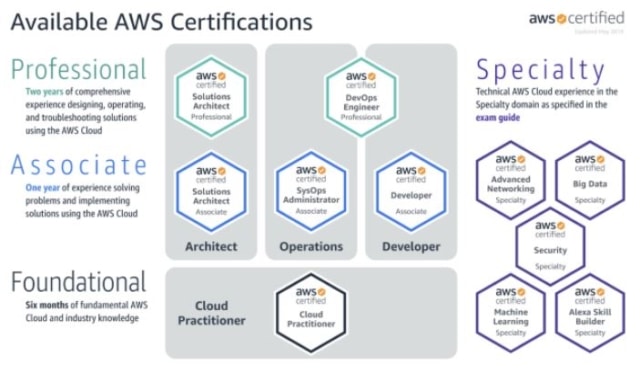
2. Udemy
Udemy is one of the leading online courses on a multitude of topics, including a wide range of cloud computing courses. They work with leading educational organisations and professionals to provide the highest quality content.
3. Coursera
Coursera is a leading platform for online education. They partner with big-name universities like Yale, Stanford, Harvard, and more to deliver high-quality courses. This platform provides a wide range of cloud engineering training and certifications, including Computer Science or Data Science Masters Degrees from the University of Illinois and Arizona State University.
Hackathons

Hackathons have a dual purpose for the life of the cloud engineer. They’re great places to network and meet others in your field, and they help you learn and enhance your cloud engineering skills!
These are usually multi-day events and have large crowds of cloud engineers working together on teams to build the very best applications or cloud technology. Never mind that they’re also extremely social and fun, and you’ll come out with oodles of free swag.
Building prototypes
The very best way to sharpen your skills is actually to use them! Github is the perfect place for you to do just that. Github is also a fantastic way for you to promote and share your work with others. For example, you can use links to your work mentioned in your resume or on Linkedin, so people have direct access to see what you can do.
Where to look for cloud jobs
Many websites have job search features and areas where you can upload or present your CV. The best website for this used to be Indeed, but they have since started restricting some job types and how they appear in their search results.
The best multi-organisation job sites for cloud engineers are now Google for Jobs and ZipRecruiter. Google for Jobs is the only job search that is fully in tune with the job seeker. They don’t take money from businesses or recruiters for job placement, and on the whole, the search is user friendly and comprehensive. ZipRecruiter is a job aggregator which has a database of available jobs that include cloud engineering jobs.
Explore RingCentral career opportunities
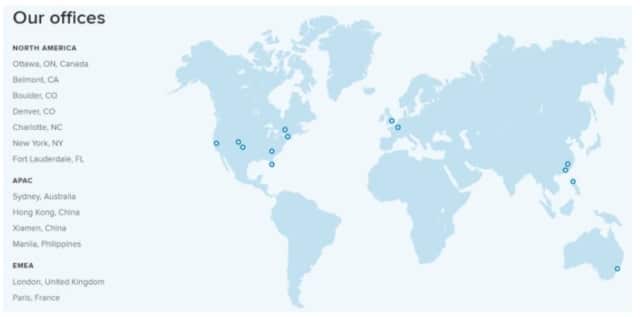
You can also, of course, have a look at the jobs we have on our website. We’re a rapidly growing business globally and are always in need of dynamic, enthusiastic, and knowledgeable cloud engineers.
No matter where in the world, you’ll find that we have an open and highly innovative team culture that’s dedicated to driving excellence while having a great time doing it.
Originally published Jan 26, 2021, updated May 15, 2021


